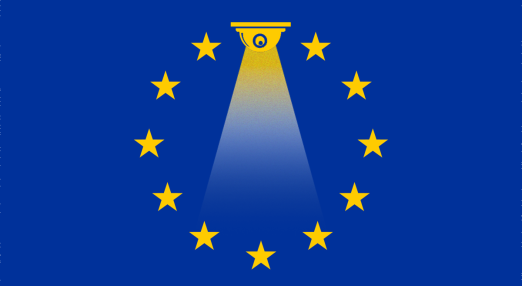Biometrics
Filter by...
-

The EU’s Artificial Intelligence Act: Civil society amendments
Artificial Intelligence (AI) systems are increasingly used in all areas of public life. It is vital that the AI Act addresses the structural, societal, political and economic impacts of the use of AI, is future-proof, and prioritises affected people, the protection of fundamental rights and democratic values. The following issue papers detail the amendments of civil society following the Civil Society Statement on the AI Act, released in November 2021.
Read more
-

Building the biometric state: Police powers and discrimination
This report examines the development and deployment of biometric identification technologies by police and border forces in Europe, and warns that the increasing use of the technology is likely to exacerbate existing problems with racist policing and ethnic profiling.
Read more
-

The European Commission does not sufficiently understand the need for better AI law
The Dutch Senate shares the concerns Bits of Freedom has about the Artificial Intelligence Act and wrote a letter to the European Commission about the need to better protect people from harmful uses of AI such as through biometric surveillance. The Commission has given a response to this which is not exactly reassuring.
Read more
-

ID-Fingerprint obligation to be reviewed by European Court of Justice
The local Administrative Court of Wiesbaden (Hesse, Germany), where EDRi member Digitalcourage started legal action against the obligation for fingerprints in identity (ID) cards, submited the case to the European Court of Justice (ECJ).
Read more
-

UK can join EU surveillance schemes with no parliamentary scrutiny, warns new report
The UK can join intrusive EU surveillance schemes including a pan-European network of police facial recognition databases with no need for parliamentary debate or scrutiny, says a new report published by EDRi member Statewatch.
Read more
-

Short Film “Reclaim Your Face”: the harms of Biometric Mass Surveillance to society
‘Biometric Mass Surveillance pose a danger to society’ is the main message of Alexander Lehmann's latest short film. And there is no better place to premier this movie than at the last Chaos Computer Club's end of the year event rC3. The film "Reclaim Your Face" highlights the issues surrounding biometric mass surveillance and underlines the harms that its’ systems pose to our society.
Read more
-

European court supports transparency in risky EU border tech experiments
The Court of Justice of the European Union has ruled that the European Commission must reveal initially-withheld documents relating to the controversial iBorderCtrl project, which experimented with risky biometric ‘lie detection’ systems at EU borders. However, the judgement continued to safeguard some of the commercial interests of iBorderCtrl, despite it being an EU-funded migration technology with implications for the protection of people’s rights.
Read more
-

Press release: European Commission jumps the gun with proposal to add facial recognition to EU-wide police database
The European Commission has put forward a proposal to ‘streamline’ the automated sharing of facial recognition images and other sensitive data by police across the EU. What will be discarded in order to ‘streamline’ the process? Vital safeguards which are designed to protect all of us from state over-reach and authoritarian mass surveillance practices.
Read more
-

EU ropes in intelligence agencies for enhanced border checks targeting Afghan nationals
Intensified border security checks targeting Afghan nationals have been agreed by the Council of the EU, with the procedures requiring the extraction of mobile phone data and significant coordination with national intelligence agencies – despite the EU having no competences in the realm of “national security”.
Read more
-

The ICO provisionally issues £17 million fine against facial recognition company Clearview AI
Following EDRi member Privacy International's (PI) submissions before the UK Information Commissioner's Office (ICO), as well as other European regulators, the ICO has announced its provisional intent to fine Clearview AI.
Read more
-

Data Retention? Advocate General says “Asked and answered!”
After the 2020 landmark ruling (La Quadrature du Net and others), one would have hoped that the Court had provided sufficiently clear conclusions with regards to the legality of data retention regimes in the EU. Nonetheless, the three referring national courts maintained their requests for preliminary rulings.
Read more
-

New German government calls for European ban on biometric mass surveillance
The newly-agreed German government coalition has called for a Europe-wide ban on public facial recognition and other biometric surveillance. This echoes the core demands of the Reclaim Your Face campaign which EDRi has co-led since 2020, through which over 65 civil society groups ask the EU and their national governments to outlaw biometric data mass surveillance.
Read more
